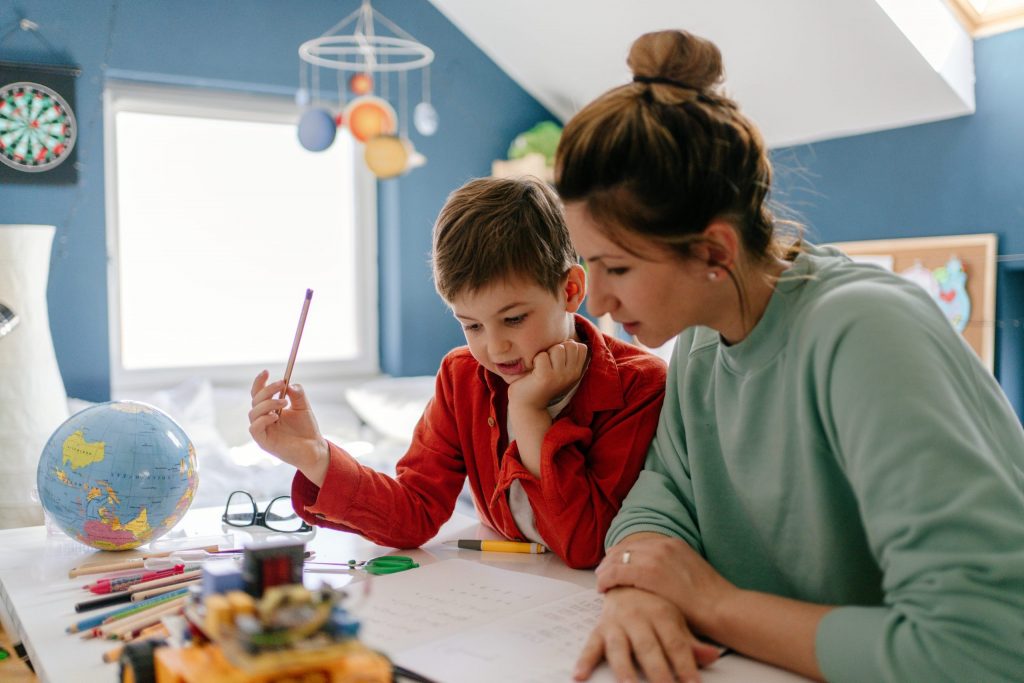Introduction
In recent years, homeschooling has experienced a significant surge in popularity, challenging the traditional norms of conventional schooling. This paradigm shift has sparked a crucial conversation about the benefits of homeschooling and its profound impact on parent-child relationships. In this blog, we will explore the essence of schooling and upbringing, dissect the rise and fall of conventional schooling culture, delve into the realm of homeschooling beyond kindergarten, analyze the increasing trend of homeschooling in the United States, compare it to global practices, and explore the rich history of homeschooling, dating back to ancient philosophers like Plato.
What is Schooling?
Traditional schooling has been the cornerstone of education for centuries. However, it often follows a standardized curriculum, leaving little room for individualized learning experiences. The rigid structure may not cater to the unique needs and pace of every child, potentially hindering their intellectual and emotional development.

What is Upbringing?
Upbringing transcends academic knowledge; it encompasses the holistic development of a child, including moral values, social skills, and emotional intelligence. Homeschooling provides a platform where parents can actively participate in shaping their child’s character, aligning education with personalized values and principles.
Rise and Fall of Conventional Schooling Culture
Over the years, conventional schooling has faced criticism for its one-size-fits-all approach. Large class sizes, limited teacher-student interaction, and standardized testing have raised concerns about the system’s ability to cater to the diverse needs of learners. Homeschooling emerges as a viable alternative, offering a flexible, tailored educational experience.
History of Homeschooling
The roots of homeschooling can be traced back to ancient times, where philosophers like Plato and Socrates were educated in private settings. Throughout history, homeschooling remained a prevalent method of education, especially among the elite. In the 19th century, with the advent of compulsory education laws, homeschooling took a backseat, but its resurgence in the modern era showcases its timeless appeal.
Homeschooling Beyond Kindergarten
As the world evolves, the traditional notion that formal degrees are the only path to success is being challenged. Homeschooled students often excel academically and in life, showcasing that a personalized, non-traditional education can be just as, if not more, valuable than a conventional one. In addition to this, Parents opt for homeschooling as a choice for more personalized learning, the ability to have control over the school calendar, or a wish to incorporate religious or moral instruction into the curriculum for their children. Journey Home School Academy and many other groups have developed their curriculum for which can cause ease for the parents.

Increasing Trend of Homeschooling in the US
The United States has witnessed a steady rise in homeschooling, with more families opting for this alternative approach. A global comparison reveals that homeschooling is not just an American trend; it is a global movement. Countries across the world are recognizing the merits of personalized education, fostering a sense of autonomy and empowerment in learners.

Homeschooling trend existed in the US but this increased incredibly during COVID-19 pandemic. Many families in US continued the homeschooling even after the pandemic. According to a study by Tutors it was found that homeschooling is an easier and cheaper mode of teaching for the parents. The source has also studied that the average cost of a homeschooling child is slightly higher than public schools in many stats. However, it is comparatively negligible than private schools. In addition to this, parents also save transportation and lodging costs while opting for homeschooling. There are also some other options to option for a private tutor during homeschooling as per the affordability of the family.
Homeschooling as the Best Way of Self-Learning
One of the standout advantages of homeschooling is its intrinsic capacity to foster self-directed learning. In conventional schools, students often adhere to a predetermined curriculum, leaving limited room for exploring personal interests. Homeschooling, on the other hand, empowers students to take charge of their learning journey.
In a homeschooling environment, children can delve into subjects that captivate their curiosity, fostering a genuine love for learning. This approach not only results in a more engaged and motivated student but also allows for a deeper understanding of topics that may go beyond the scope of a standard curriculum. The freedom to explore diverse subjects enables students to discover their passions early on, setting the stage for a lifetime of self-driven education.

Moreover, homeschooling encourages critical thinking and problem-solving skills. Without the constraints of a rigid classroom structure, students are prompted to find solutions independently, instilling a sense of resourcefulness and resilience. This emphasis on self-learning not only prepares students academically but equips them with valuable skills for navigating the complexities of the real world.
Homeschooling as a First Step to Skill-Based Learning
In the dynamic landscape of the 21st century, education is evolving beyond traditional measures of success. Homeschooling emerges as a progressive avenue, acting as the first step towards skill-based learning. The shifting demands of the future workforce underscore the critical importance of equipping students with practical skills, a need that homeschooling adeptly addresses.
As employers pivot from degree-based to skills-based hiring practices, the emphasis is now on tangible competencies that individuals bring to the table. A compelling article on Discourse Magazine highlights this paradigm shift, affirming that employers are increasingly recognizing the value of skills over formal degrees. Homeschooling, with its focus on personalized education, aligns seamlessly with this emerging trend, positioning students to thrive in a professional landscape that values hands-on capabilities and adaptability.
Homeschooling allows for a tailored approach to education, enabling parents to identify and nurture their child’s unique talents and interests. By emphasizing skill-based learning, homeschooling equips students with a diverse set of competencies, ranging from critical thinking and problem-solving to creativity and adaptability. These skills transcend the boundaries of traditional subjects, preparing students not just for exams but for the challenges and opportunities they will encounter in real-life scenarios.

Moreover, homeschooling provides flexibility in integrating real-world experiences into the learning process. Whether it’s through internships, apprenticeships, or hands-on projects, homeschooled students have the freedom to apply theoretical knowledge in practical settings. This direct application of skills enhances understanding, fosters a sense of responsibility, and instills a strong work ethic—a crucial foundation for success in any field.
By accepting homeschooling as a first step to skill-based learning, we acknowledge the importance of a well-rounded education that goes beyond memorization. It paves the way for individuals who not only excel academically but also possess the practical skills and adaptability needed to navigate an ever-changing global landscape. As the world of employment evolves, homeschooling positions students as agile and proficient contributors, well-equipped to meet the demands of a skills-driven future.
Conclusion: Embracing the Future of Education
Conclusively, homeschooling emerges not only as a response to the limitations of conventional schooling but as a proactive choice towards holistic development, self-directed learning, and skill acquisition. As families increasingly recognize the benefits of this personalized approach, the homeschooling movement continues to shape the future of education.
The resurgence of homeschooling in the modern era reflects a shifting paradigm. As societies move beyond the industrial age into a more technologically advanced and information-driven era, the limitations of mass education become evident. Homeschooling, with its personalized approach, challenges the one-size-fits-all model imposed by the industrial-era schooling system. In the contemporary context, homeschooling not only showcases its timeless appeal but also stands as a counterpoint to the impact of capitalist culture on education. The recognition of the unique needs and potential of each learner becomes paramount in an era where creativity, critical thinking, and adaptability are valued assets.
By fostering stronger parent-child relationships, nurturing a love for self-learning, and acting as the first step towards skill-based education, homeschooling stands as a beacon for those seeking an education that transcends the confines of traditional norms. As we navigate the challenges and opportunities of the 21st century, embracing the multifaceted advantages of homeschooling positions us at the forefront of a progressive and transformative educational paradigm.



